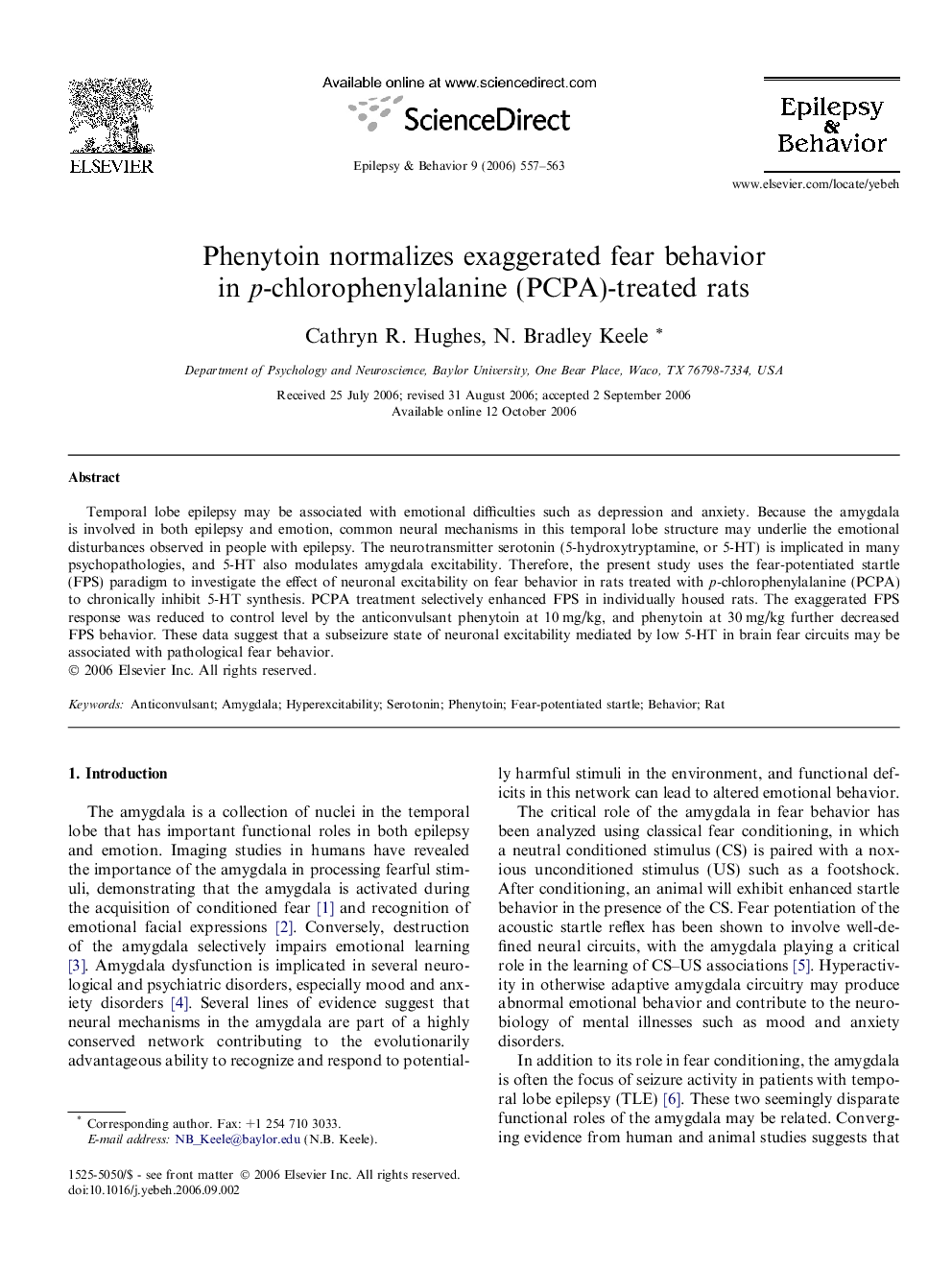| کد مقاله | کد نشریه | سال انتشار | مقاله انگلیسی | نسخه تمام متن |
|---|---|---|---|---|
| 3051545 | 1185988 | 2006 | 7 صفحه PDF | دانلود رایگان |

Temporal lobe epilepsy may be associated with emotional difficulties such as depression and anxiety. Because the amygdala is involved in both epilepsy and emotion, common neural mechanisms in this temporal lobe structure may underlie the emotional disturbances observed in people with epilepsy. The neurotransmitter serotonin (5-hydroxytryptamine, or 5-HT) is implicated in many psychopathologies, and 5-HT also modulates amygdala excitability. Therefore, the present study uses the fear-potentiated startle (FPS) paradigm to investigate the effect of neuronal excitability on fear behavior in rats treated with p-chlorophenylalanine (PCPA) to chronically inhibit 5-HT synthesis. PCPA treatment selectively enhanced FPS in individually housed rats. The exaggerated FPS response was reduced to control level by the anticonvulsant phenytoin at 10 mg/kg, and phenytoin at 30 mg/kg further decreased FPS behavior. These data suggest that a subseizure state of neuronal excitability mediated by low 5-HT in brain fear circuits may be associated with pathological fear behavior.
Journal: Epilepsy & Behavior - Volume 9, Issue 4, December 2006, Pages 557–563